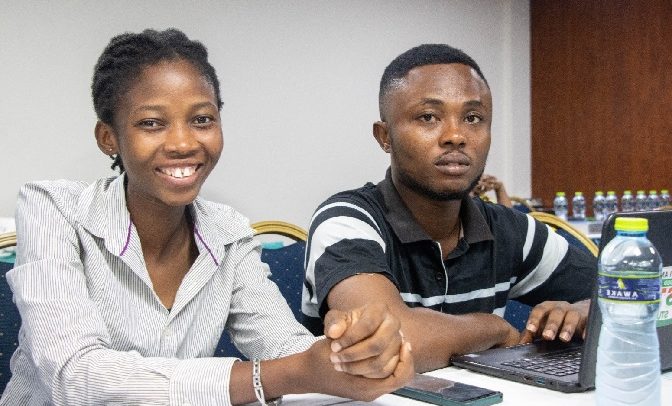Participants at the MFWA Fact-checking workshop
Media Foundation for West Africa (MFWA), with funding support from the Foreign Commonwealth and Development Office (FCDO), has conducted a two-day training workshop for journalists on fact-checking and countering misinformation in Ghana.
The objectives of the training are to enhance the knowledge of a total of 125 journalists, with at least 40 per cent of them being female, on the phenomenon of misinformation and disinformation and improve their skills for analyzing content and producing fact-check reports.
The training, which ended last Friday in Accra, exposed the participants to concepts such as information disorder, fake news, and misinformation; how pervasive these are; how they manifest; as well as their impact on peace and democratic governance.
“Lately, the rise of misinformation in our media landscape has exposed our news consumers to unhealthy information that causes various degrees of harm. And it has been estimated that fake news may increase as we head toward the election of 2024.
This is the reason why the foundation, with its supporting partners, has designed this program to bring our media stakeholders under one umbrella to educate them on misinformation. And how to counter it by fact-checking information before we publish it,” “said Abigail Larbi Odei, Programme manager for media and good governance.
Senior Lecturer, Dept. of Communications Studies at the University of Ghana, Dr. Gilbert Tietaah highlighted the phenomenon of fake news, adding, it can pollute the public sphere and damage democracy.
“Sarcastic news sites, fabricated news items, manipulated photography, and propaganda, among others, have significant real-world implications and are the greatest threats to our democracy,” he posited.
Speaking on “Understanding Fact-Checking and Tinkering with the Fact-Checking Tools”, Kwaku Krobea Asante, Fact-Check Ghana Lead, emphasized the need for journalists to fact-check information before publishing.
At the training session, Mr. Asante provided a deep dive into some fact-checking and verification tools that can be used to identify and counter misinformation and disinformation, as well as fact-checking standards and ethics.
Participants who spoke to the paper expressed gratitude to the MFWA and its supporting partners for the workshop.
“The training has enhanced my knowledge on the phenomenon of misinformation and disinformation and also improved my skills for analyzing content to produce fact-check reports,” said Rosemond Asmah, ATL FM, Cape Coast.
By Prince Fiifi Yorke


